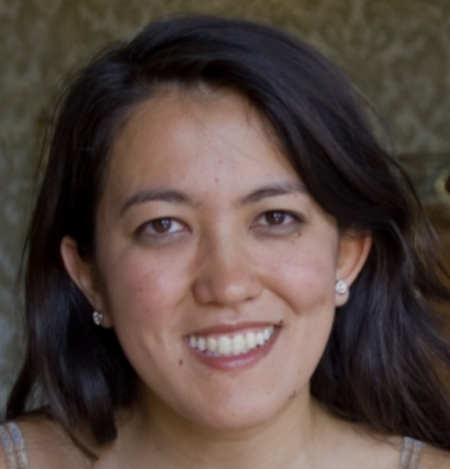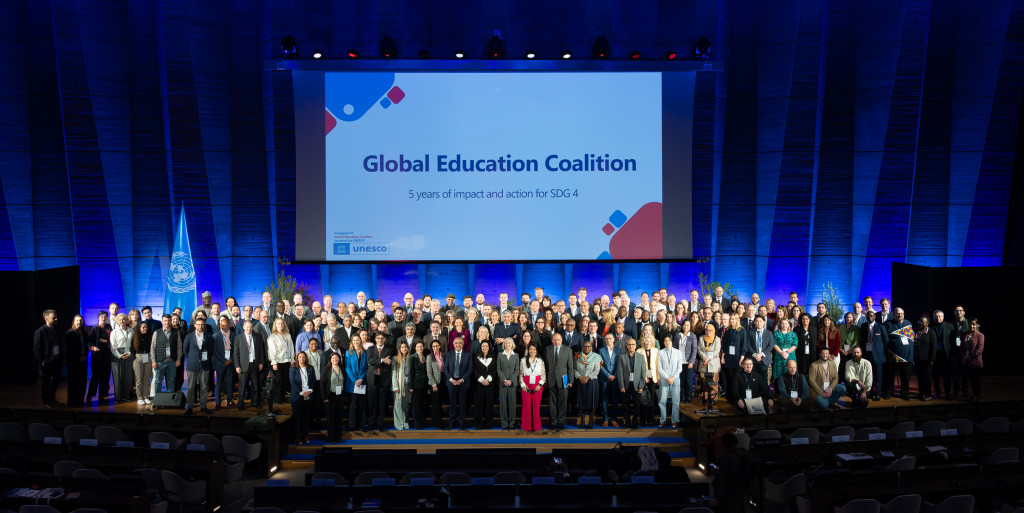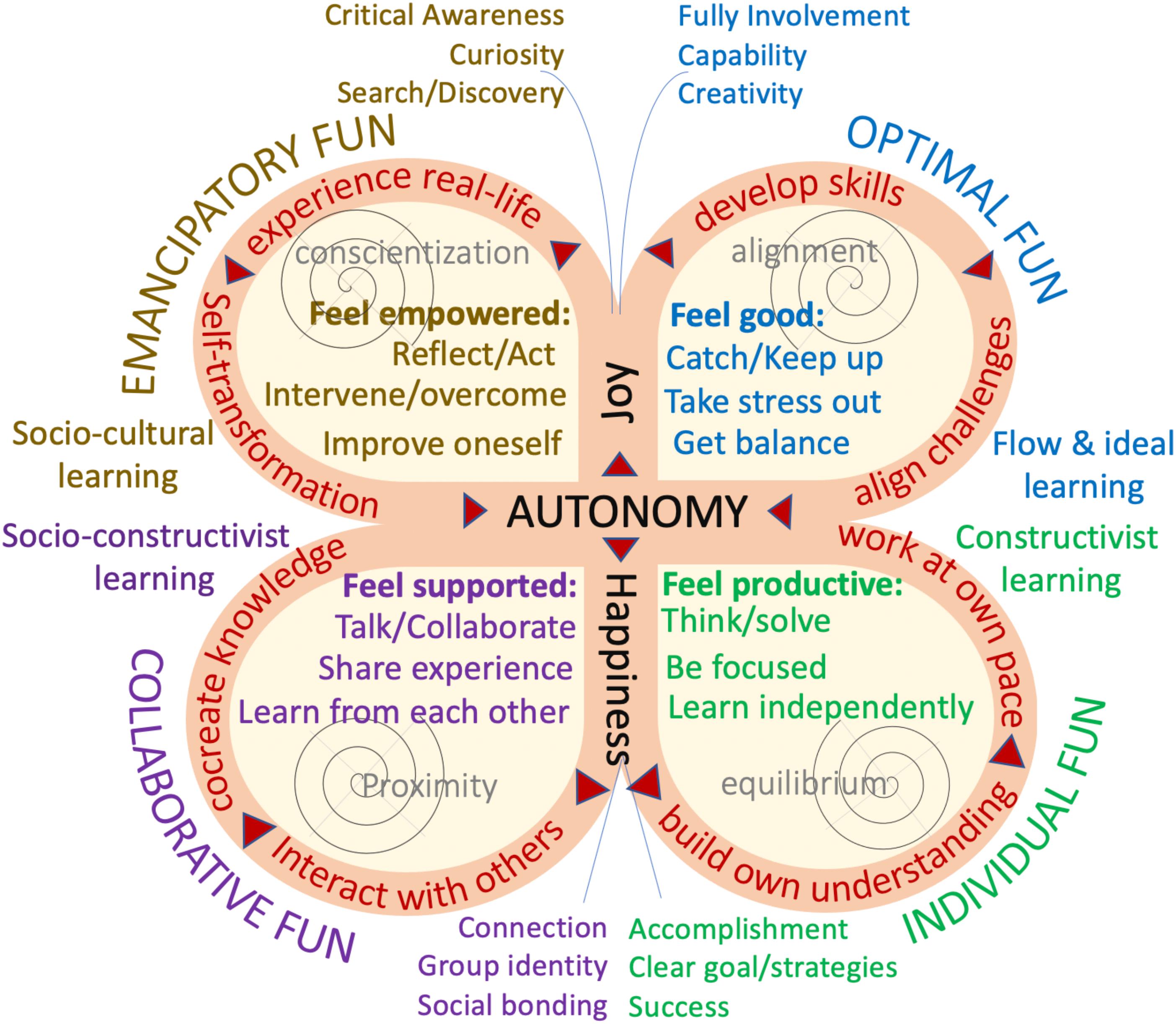
Dr Alexandra Okada
Senior Research Fellow
School of Education, Childhood, Youth & Sport
Biography

Dr. Alexandra Okada is an Associate Research Professor in Global Education and Digital Transformation at the Open University UK. As a Senior Fellow of the Higher Education Academy, she has established herself as a leading expert in open education integrated with open science, with particular emphasis on equity, diversity, social inclusion, and climate justice. Her interdisciplinary expertise spans Science, Technology, and Education, focusing on enhancing Teaching, Learning, Research, and Professional Development aligned with Sustainable Development Goals. She serves as a European Union Expert Advisor on Responsible Research, Innovation and STEM Education and is also a UNESCO Inclusive Policy Lab Expert, and a Global Education Coalition Leader for Diversity, Equity, and Inclusion with AI in Schools.
Her academic credentials include a BSc in Computer Science (Hons), an MA in Education (Curriculum), a Postgraduate Qualification in Further Education (PGCFE), an MBA in Knowledge Management and Science Communication, and a PhD in Education (Technology-Enhanced Learning).
Academic Impact and Scholarly Contributions
Dr. Okada's scholarly influence is demonstrated by over 3,210 citations and an h-index of 30 (Google Scholar), complemented by a prolific publication record. Her work includes nine authored books, seven edited volumes, 25 book chapters, 48 journal articles, 70 conference papers, and 14 policy reports, reflecting her sustained academic engagement and thought leadership in the field.
Her expertise intersects Science, Technology, and Education, focusing on enhancing Teaching, Learning, Research, and Professional Development in line with the Sustainable Development Goals. Okada's contributions involve the co-creation of new frameworks, methods, and tools for constructing and extending knowledge within social contexts. Drawing on sociocultural theory, critical pedagogy, and mixed methods, her research endeavors to prepare the upcoming generation for Responsible Research and Innovation (RRI).
Research Partnerships
RRI aligns scientific progress with societal needs across six key sectors, all of which Dr. Okada has contributed to throughout her career.
- Educational Communities: With experience as a teacher and teacher educator, Dr. Okada brings practical classroom insights. Through ENGAGE and CONNECT, she leads a network of over 1,500 teachers and 50,000 students engaged in open schooling.
- Scientific Institutions: As a lecturer and researcher, she bridges scientific research and education. She coordinated the COLEARN network in Brazil, supporting 12 universities, and now collaborates with METEOR and Open.EU, engaging universities focused on SDG4.
- Business & Industry: Formerly a computer scientist at Johnson & Johnson and IBM, both leaders in corporate sustainability and innovation, she integrates sustainability into corporate frameworks. Her collaborations include Lenovo, Google, AI Exus Lab, and Mastery Science for school STEM and AI education. Additionally, she works with Loba Communications, La Caixa IRSI Living Lab, and the Danish Board of Technology (DBT) for advancing public engagement through RRI at national and international levels.
- Civil Society Organizations: As a senior consultant for the Association for Science Education UK and advisor to the Brazilian Government, she influences educational policy. At the European level, she co-founded the Open Schooling Together network and leads the Green Forum Network, collaborating with various CSOs and NGOs.
- Policymakers: As advisor to the Brazilian Government's Secretary of Continuing Education, Literacy, Diversity, and Inclusion, she helps shape sustainable education policies. As an expert of the UNESCO Inclusive Policy Lab, she supports policymakers across Europe, Latin America, and Africa.
- Global Advocacy & Science Diplomacy: A Global Education Coalition representative at UNESCO and a UN Science Diplomacy Advocate, Dr. Okada actively contributes to international discussions on education, sustainability, and digital transformation. She also engages with European Commission initiatives promoting science education and open innovation.
Research Funding and Grant Acquisition
Dr. Okada has currently secured £25.7 million in research funding including €10.4 million as Principal Investigator (PI) for five European Union projects. In addition, as a Co-Investigator, she contributed to three projects, securing €15.3 million, demonstrating her leadership in large-scale, high-impact research.
As the Research Leader and PI, she has led European-funded initiatives in inquiry-based education and sustainability, as well as US-funded programmes in foundational and digital skills, including:
-
METEOR (2025–present): Expanded the CARE-KNOW-DO framework to enhance PhD students' and Early Career Researchers' transversal skills through METEOR academies and PMG peer-mentoring groups.
-
CATCH UP (2023–present, US-funded): Advanced the CARE-KNOW-DO framework to support literacy, numeracy, and social-emotional learning in humanitarian education settings.
-
CONNECT (2021–present): Applied the CARE-KNOW-DO framework to democratize science education, broaden access to science careers, and foster transversal skills for sustainable development.
-
TESLA (2016–2019): Led research on trust-based e-assessment, conducting large-scale cross-national studies with 22,000+ learners, focusing on academic integrity, quality assurance, and multilingual data validation.
-
ENGAGE (2014–2017): Developed an Inquiry Skills Framework aligned with Responsible Research and Innovation (RRI), influencing curricula across Europe and reaching 18,000+ teachers in 80 countries. This work was integrated into the AQA National Exam Board (UK).
-
weSPOT (2013–2015): Coined the inquiry workflow for pervasive learning with open technologies, engaging 250+ participants in community-led science projects across eight countries.
Dr. Okada's expertise in global education, Responsible Research and Innovation (RRI), and e-assessment continues to shape policy, curriculum design, and research innovation across Europe and Latin America."
Doctoral Supervision and Mentorship
Dr. Okada has supervised 11 PhD students from Brazil, Portugal, and the UK, across diverse research areas, including STEM education, collaborative learning in higher education, inclusive teacher professional development, technology-enhanced sustainability education, foundational skills, and open schooling. She is currently supervising two EdD students in the final stages of their research on inclusive outdoor education in early childhood and reflective participatory approaches in teacher professional development. Several of her PhD students have received prestigious awards, including recognition from AOUG, the Catalyst Network (European Union), and OEGLOBAL.
International Recognition and Keynotes
Her expertise is internationally recognized, reflected in frequent invitations to high-profile events. She has spoken at the UNESCO Global Education Meeting on AI and Digital Education; the European Commission's Year of Skills; the Association for Science Education (ASE-UK); ECSITE; and ESERA. Her contributions also include keynote and panel participation at UN General Assembly climate discussions linked to sustainable development, as well as education events focused on advancing SDG4 and global literacy. She has held visiting professorships at esteemed institutions, including the Federal University of São Paulo, Bahia State University, the Federal University of Santa Catarina, Minho University, and the Open University of Portugal.
Awards and Honors
Her innovative work has earned significant recognition, including being named one of NARST's Top 10 Research Worth Reading for her empirical and conceptual contributions to empowering students to connect science to their lives. She received an award from OEGLOBAL for the OpenApp with Mixed Reality for Open Schooling in Museums and was a finalist for her AI in Education project, "Knowledge Cartography for Young Thinkers," which utilizes AI mapping tools for sustainability. Additionally, UNESCO ranked her initiatives among the top three in Global Education and Digital Transformation. Her research on Catch Up Education was nominated for the UNESCO Literacy award, recognizing its excellence and impact in foundational skills and social-emotional learning. Furthermore, her work was a finalist in The Open University's Open Research category for Inclusive Open Schooling in Engaging and Future-Oriented STEM Education.
Editorial Roles
Dr. Okada serves as an editorial board member and peer review expert for several respected journals, including MDPI Sustainability, BJET – British Journal of Educational Technology, JRST – Journal of Research in Science Teaching (Wiley), and Springer AI in Education. Her involvement reflects her commitment to advancing scholarly discourse in her fields.
Research Interests
Dr. Okada is dedicated to enriching education by merging formal and informal learning methods, with a strong belief in incorporating elements of enjoyment and fulfillment into the educational process. Her approach aims to empower teachers, researchers, and students with the essential knowledge, skills, and attitudes necessary for navigating the swiftly changing realms of science and technology. By addressing both local and global challenges, her work leverages innovative tools like mixed realities, knowledge mapping, artificial intelligence, and embraces open science initiatives.
Bringing over twenty-five years of experience in technology-enhanced learning, assessment, and science education, Alexandra has played a pivotal role in leading research projects, especially those funded by various European entities in the areas of Information and Communication Technologies (ICT) and Science with and for Society. Her contributions extend to managing significant projects funded by the Brazilian government, focusing on enhancing gender inclusion, digital literacy, and the professional development of teachers.
Dr. Okada's expertise is notably profound in the domain of transformative and emancipatory literacies within the digital age. This encompasses a broad spectrum of Responsible Research and Innovation (RRI) components including, but not limited to, open access, ethics, gender equality, public engagement, governance, and science education. Presently, she is at the forefront of developing a framework centered on 'emancipatory fun' in education. This innovative framework seeks to redefine educational practices by integrating open and inclusive fun learning methodologies, as evidenced by her analytical work on the Rumpus projects aimed at fostering Innovative Education for Sustainability.

Teaching Interests
Dr. Okada's academic contributions encompass designing and teaching diverse courses in educational technology, online learning methodologies, open educational resources, and software applications for mixed methods research. These courses are targeted at both undergraduate and postgraduate students. Her extensive experience, gained initially through roles as a STEM teacher educator in Brazilian secondary schools and as an instructor for summer courses in the UK, has endowed her with a profound understanding of digital educational practices, particularly those related to sustainability.
Currently serving as an honorary lecturer at the Open University, with appointments in both Brazil and Portugal, Dr. Okada instructs postgraduate students in Knowledge Cartography and Responsible Research and Innovation in Education, with a focus on sustainability issues and AI tools, as outlined in her new book. She has successfully guided eleven PhD candidates to completion. Furthermore, Alexandra's contributions to the development, execution, and assessment of a European MOOC, aimed at engaging science through responsible research and innovation, have reached 18,000 educators across Europe and Brazil. In addition, her role as the scientific coordinator of an open schooling initiative has had a significant impact, affecting more than 50,000 students.
Impact and Engagement
Dr. Okada's pioneering work in "Knowledge Cartography for Sustainability" over the past 15 years stands as a testament to her commitment to integrating sustainability into education. Through collaboration with international experts, she has advanced both conceptual frameworks and methodological tools. Her innovative "evidence-based dialogue mapping" method empowers students to tackle real-world challenges through scientific argumentation, finding its place in areas like inquiry design, citizen science, and policy analysis.
External Collaborations
Dr. Okada is a consultant member of the Association for Science Education (ASE-UK), where she has enhanced the professional development of secondary school science teachers through projects like Science Upd8 and Wikid, aimed at providing contemporary science resources. Additionally, she has developed open educational resources and technology-enhanced materials for primary school science teachers, contributing to projects such as Upd8 Primary and Mastery Science in the UK.
International Links
Her research in the fields of Science, Education, and Technology has been supported by international organizations including the Hewlett Foundation, Telefonica Foundation, the Brazilian Government, and the European Commission. This funding facilitated the establishment of various partnerships across Europe, Latin America, and Africa, particularly through the Community of Portuguese Language Countries (CPLP).
Dr. Okada has collaborated with a diverse array of international institutions, multinational corporations, and civil society organizations. Notable examples include IBM, Nestlé, the Catalan National Education Centre, Brazil's Bank, UNICEF, and the International Labour Organization (ILO) and UNESCO.
Publications
Book
Escolarização Aberta: Algumas Experiências do Sul do Brasil (2025)
Innovative Teaching for Responsible Citizenship: Policy Report (2016)
Engaging Science: Innovative Teaching for Responsible Citizenship (2016)
Competências Chave para Coaprendizagem na Era Digital: fundamentos, métodos e aplicações (2014)
Knowledge Cartography: Software Tools and Mapping Techniques (2nd ed) (2014)
Collaborative Learning 2.0: Open Educational Resources (2012)
Moodle: Estratégias Pedagógicas e Estudos de Casos (2009)
Knowledge Cartography: Software tools and mapping techniques (2008)
Cognitive Cartography: Knowledge maps for research, education and teaching (2008)
Book Chapter
Inquiry-Based Learning on the Cloud (2020)
Inquiry-Based Learning on the Cloud (2016)
"Colearning" - Collaborative Open Learning through OER and Social Media (2013)
Open educators and colearners as DJs: reuse, remix, and recreate OER collaboratively! (2012)
Introduction to Section 2: Producing, reusing and recreating OERs (2012)
COLEARN 2.0: Refletindo sobre o conceito de COAPRENDIZAGEM via REAs na Web 2.0 (2011)
Estilos de aprendizagem na educação aberta online (2010)
Eliciting thinking skills with inquiry maps in CLE (2010)
Mapas Argumentativos como Estratégia para Aprendizagem no Moodle (2009)
Knowledge media tools to foster social learning (2009)
Knowledge Cartography for Controversies: The Iraq Debate (2008)
Scaffolding School Pupils’ Scientific Argumentation with Evidence-Based Dialogue Maps (2008)
OpenLearn and knowledge maps for language learning (2008)
O que é cartografia cognitiva e por que mapear redes de conhecimento? (2008)
Asymmetry analysis: The place of models (2008)
Some quadratic optimisation problems in psychometrics (2008)
Memorial reflexivo em cursos on-line: um caminho para avaliação formativa emancipadora (2007)
Mapas Conceituais em projetos e atividades pedagógicas (2007)
The Collective Building of Knowledge in Collaborative Learning Environments (2005)
Mapas virtuais em ambientes colaborativos de aprendizagem (2003)
Digital Artefact
Struggle, adaptation, and hope: reframing catch-up learning beyond external solutions (2025)
LiteMap - Mapeamento do conhecimento (2019)
Journal Article
Synchronous online learning: why some students don’t actively participate (2025)
e-Authentication for online assessment: A mixed-method study (2019)
Continuing teacher training using dilemmas with elements of ubiquity (2017)
Innovative Teaching of Responsible Research and Innovation in Science Education (2015)
New learning scenarios for the 21st century related to Education, Culture and Technology (2015)
Scientific Literacy in the digital age: tools, environments and resources for co-inquiry (2013)
weSPOT: A personal and social approach to inquiry-based learning (2013)
Projeto OpenScout Tool-Library: integrando pessoas, recursos e histórias (2012)
Ambientes virtuais de aprendizagem aberta: bases para uma nova tendência (2010)
Designing Open Educational Resources through Knowledge Maps to enhance Meaningful learning (2008)
Fostering Open Sensemaking Communities by Combining Knowledge Maps and Videoconferencing (2008)
Knowledge Cartography for Open Sensemaking Communities (2008)
Knowledge Media Technologies for Open Learning in Online Communities (2007)
Other
Inspiring foundational learning for all children: A call for action (2025)
Open Schooling Declaration (2023)
Key Stage 3 Science Syllabus: An approach to teaching the programme of study (Version 2.2) (2016)
Presentation / Conference
The role of active participation in online synchronous learning (2022)
Did you really do this? E-authentication raising confidence in e-assessment (2019)
Immersive Analytics Through HoloSENAI MOTOR Mixed Reality App (2019)
An embedded approach to plagiarism detection using the TeSLA e-authentication system (2019)
Student acceptance of online assessment with e-authentication in the UK (2018)
Student Trust in e-Authentication (2018)
Rubric to Assess Evidence-Based Dialogue of Socio-Scientific Issues with LiteMap (2018)
Peer Learning And Assessment-in-Context With 3D Immersive Glasses (2017)
Responsible Research and Innovation for Contemporary Education (2017)
Students’ views on trust-based e-assessment system for online and blended environments (2017)
Fostering young smart citizens through personal learning environments for urban inquiries (2015)
Developing 21st century skills through colearning with OER and social networks (2014)
Reliability of web-based information in inquiry projects (2014)
Co-authorship and colearning through Open Educational Resources at UKOU (2014)
Mobilidade aberta: coaprendizagem e coinvestigação em ambientes acadêmicos (2014)
Scientific literacy through co-inquiry based on non-formal and informal learning (2014)
Personal Learning Environments for Inquiry-Based Learning (2013)
Formação em rede para inclusão digital de educadores de telecentro (2013)
Social media for enriching collaborative open learning and collective knowledge (2013)
Refletindo sobre avaliação na era da co-aprendizagem e co-investigação (2013)
Os estilos de coaprendizagem para as novas características da educação (3.0) (2013)
weSPOT: a cloud-based approach for personal and social inquiry (2012)
The OER FLOW and social media (2012)
An OER collaborative environment: Openscout tool library and colearn community (2012)
Participatory design: creating Open Educational Resources using social media (2012)
WESPOT: Inquiry based learning meets learning analytics (2012)
Adapting and sharing open educational resources: a social networking approach (2011)
Using, adapting and authoring OER with Web 2.0 tools (2011)
The role of mentoring in facilitating the process of repurposing OER (2010)
A case of web-based collaborative inquiry learning using OpenLearn technologies (2009)
Mapping knowledge to develop academic research in collaborative learning environments (2008)
Tecnologias educacionais para aprendizagem aberta no projeto OpenLearn da Open University (2008)
Estratégias de webconferência com FlashMeeting na aprendizagem aberta (2008)
Enhancing informal learning through videoconferencing and knowledge maps (2008)
Novos paradigmas na educacão online com a aprendizagem aberta (2007)
Knowledge Mapping for Open Sensemaking Communities (2007)
Combining knowledge mapping and videoconferencing for open sensemaking communities (2007)
Using knowledge maps applied to open learning to foster thinking skills (2007)
Technologies for Open Learning in Collaborative Communities (2007)
Knowledge mapping with Compendium in academic research and online education (2006)
Trilha WEB-Map - mapeando informação e construindo conhecimentos (2005)
Twenty-first century multicultural learning: equality of gender, race and sexuality (2005)
Creating knowledge maps in Virtual Learning Environments (2005)
Collaborative learning using Microworld and WebMapQuest (2004)
Ambiente virtual de estudio y pesquisa de la interdisciplinaridad (2004)
Web maps um guia para construção do conhecimento em ambientes virtuais de aprendizagem (2003)
Articulação de saberes na EAD: por uma rede interdisciplinar e interativa de conhecimentos (2003)
The building of knowledge through virtual maps in collaborative learning environments (2003)
Cartografia cognitiva: mapeando conhecimento e organizando rede de informação na Internet (2003)
Biblioteca virtual iconográfica com Software Nestor Web Cartographer (2003)
Comunicação educativa no ciberespaço: utilizando interfaces gratuitas (2003)
Presentation / Conference Contribution
Rethinking AI in research with ancestral wisdom for future generations (2025)
Developing Social Emotional Learning Skills in Humanitarian Settings (2024)
Creating a Framework of fun and Learning: Using Balloons to Build Consensus (2020)
Repensando a IA na Pesquisa com Sabedoria Ancestral para as Gerações Futuras
Rethinking AI in Research with Ancestral Wisdom for Future Generations
Report
Catch Up Learning Programmes: A Landscape Review in the NGO Space – Research Report (2025)
Catch Up Education: Research Evaluation Framework (2025)
Research Brief: Co-Evaluation of the World Vision Catch-Up Programme in Zimbabwe (2024)